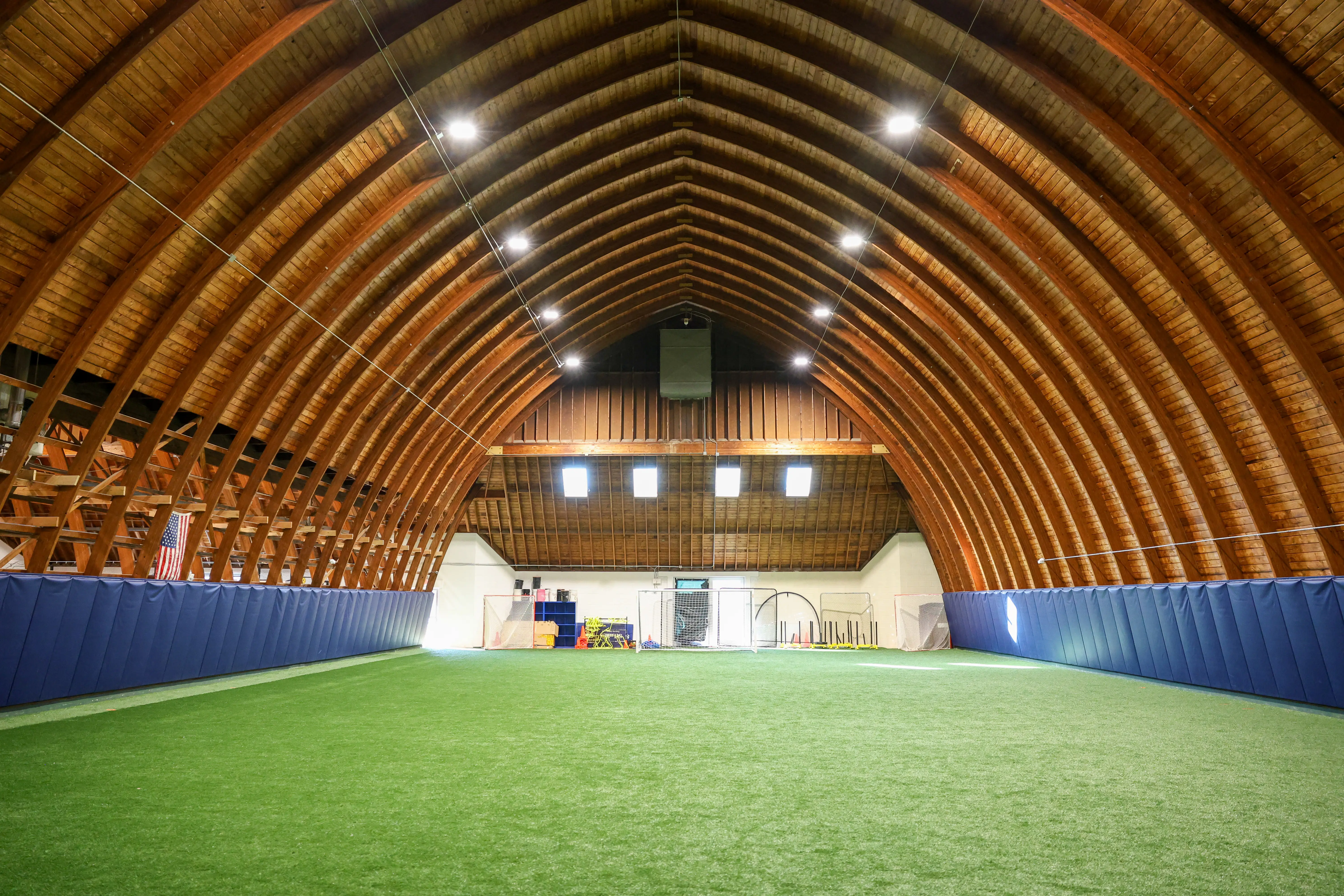

 Quality Awards
Quality Awards

St. Luke's SportsPlex, home to Pickleball Lehigh Valley, is one of St. Luke's various sport performance training facilities.
Sports Performance training refers to a structured program designed to enhance an athlete’s physical capabilities, skill set and overall performance in their chosen sport. This type of training encompasses a variety of components aimed at improving:
Sports performance training is a specialized approach to sport designed to enhance athletic ability and overall physical performance. Unlike general fitness routines, which focus on broad health benefits, sports performance training targets the specific needs of athletes, helping them to achieve peak performance in their chosen sport. This type of training offers numerous benefits, from improved physical capabilities to mental resilience, making it an essential component for athletes at all levels.
“Athletes and teams who utilize a degreed and certified sports performance coach to handle their off -season and in – season training program will reap from the benefits of doing so,” says Mike Cerimele, Director of St. Luke’s Sports Performance Operations. “Priority number one for all our sports performance coaches is keeping our athletes healthy. Will they all be stronger, faster and be more explosive on the field or court from training with us? The answer is yes, but we pride ourselves on delivering scientifically based, sport-specific, proven and innovative training protocols that enhance overall athleticism and ensure health.
“One of the primary benefits of sports performance training is the improvement of key physical attributes such as total body strength, power and speed development,” continues Ceremele. “However, there are so many other benefits that are not highlighted when sports performance is referenced. One of the most prevalent benefits that I have noticed over my 20 years working with athletes is the overall confidence level of the athlete who dedicates the time and effort to their sports performance training. I often hear from coaches and the parents of our athletes is their newfound ability to consistently work hard. In other words, their overall work ethic is significantly improved, both on and off the field.”
This training is tailored to the demands of specific sports, he says, ensuring that athletes develop the necessary skills to excel.
Strength training, a core component of sports performance training, helps athletes build muscle mass and increase power output, which translates into better performance on the field, court or track. Endurance training, on the other hand, enhances cardiovascular health, allowing athletes to sustain high levels of activity for longer periods. Agility drills improve coordination and reaction times, which are crucial for sports that require quick changes in direction, such as soccer or tennis.
Injury prevention is a critical aspect of sports performance training. By strengthening muscles, improving flexibility and enhancing joint stability, athletes are less likely to experience injuries during competition. Many training programs include exercises that target common areas of vulnerability, such as the knees, ankles and shoulders, helping to prevent sprains, strains, and other injuries.
In addition, sports performance training often incorporates corrective exercises that address imbalances or weaknesses in the body. These exercises help to ensure that all muscle groups are functioning optimally, reducing the risk of overuse injuries that can result from repetitive motions.
“Athletic performance is not just about physical ability; mental strength plays a significant role as well,” explains Cerimele. “Sports performance training often includes mental conditioning exercises designed to enhance focus, resilience and the ability to handle pressure. Techniques such as visualization, goal setting and mindfulness can help athletes maintain concentration and composure during competition, giving them a psychological edge over their opponents.”
Moreover, he continues, the discipline and perseverance required in sports performance training can translate into greater mental toughness. Athletes learn to push through challenges, overcome obstacles and stay committed to their goals, all of which are essential traits for success in sports and life.
One of the standout benefits of sports performance training is its individualized approach. Training programs are often customized to meet the unique needs of each athlete and team, taking into account their sport, position(s), strengths and areas for improvement. This personalized approach ensures that athletes are not only improving their general fitness but are also developing the specific skills and physical attributes needed to excel in their sport.
Coaches work closely with athletes to monitor progress, adjust workouts and provide guidance on areas such as nutrition and recovery. This tailored approach maximizes the effectiveness of the training, helping athletes reach their full potential.
Sports performance training is not just about immediate gains; it is also about long-term athletic development. By building a solid foundation of physical and mental skills, athletes are better equipped to handle the demands of their sport as they progress through different levels of competition. This long-term focus helps prevent burnout, ensures consistent improvement, and allows athletes to enjoy a longer and more successful career.
By enhancing physical abilities, preventing injuries and building mental toughness, sports performance training enables athletes to achieve their peak performance and sustain it over time. Whether you are a professional athlete or someone looking to improve in a specific sport, sports performance training can be a game-changer, helping you unlock your full potential and achieve your athletic goals.